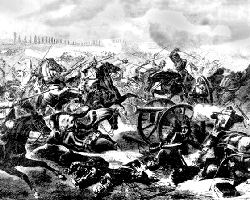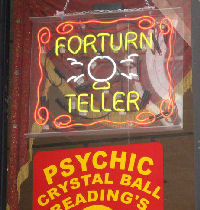Newsletter 720
22 Jan 2011
Contents
1. Feedback, notes and comments
Sidekick Several readers mentioned that they had read, or they had been told, that the origin of the word lies in kick, a cant term for a trouser pocket.

This pocket is the source neither of sidekick nor prat fall
Scott W Langill recalled a book of the 1930s by a pickpocket that mentioned this and noted that the side pocket — the side kick — was the hardest pocket to pick and that the slang term for a buddy and its connotation of trustworthiness both came from it. You may judge the etymological insight of the writer from his view that the rear trouser pocket, in pickpockets’ slang called the prat, was the origin of prat fall. It’s the other way around — prat, as a slang term for a buttock, dates from about 1560 and the hip-pocket sense is twentieth century. Unfortunately for the tellers of trouser pocket tales, kick for a pocket was British slang, not American, whereas the buddy meaning of sidekick is definitely from the US.
Others mentioned several specialist uses of kicker that might have contributed to its meaning. One is the poker sense of a side card that breaks a tie. Another is the printer’s sense of a device that after a set count of pages pushes one slightly to the side so pages can be easily counted or separated into sets. A third is that the original sidekicks would have ridden horses, encouraged by kicks to their sides, so a sidekick was one who rode alongside you. Intriguing ideas, alas with no shred of evidence to support them.
Schooner It transpires that the legal British measure of one-third of a pint that I mentioned isn’t so rare as I thought. Joan Brady wrote, “My father sold beer in one-third pints in the 1950s. He kept a pub in a poor part of Birmingham and this small measure was sold mainly to women who had managed to economise on the housekeeping enough to buy themselves an occasional drink, but not enough to afford a half pint. It was known as a stick, which I suspect was because it was served in a straight-sided glass.”
John Bradford recounted an encounter with this small measure: “I noticed on a beer glass I recently bought at the Great British Beer Festival that it was graded into pints, halves and thirds. Older glasses from the Festival do not have the third-pint measure, so I suspect its use to be on the increase, perhaps helping some of us enjoy stronger brews whilst remaining no worse than one-third cut!”
Nobody from the UK wrote to say that they knew of schooner as a term for a beer glass. However, Tim Nott introduced me to another term: “In Cheltenham, where I lived 17 years ago, a sleever was a tall thin half-pint or pint beer glass without a handle.” This is well known, I discover, as a British term for a slightly tapered glass with a bulge near the top. Online sources suggest it has that name because they can be stacked, or sleeved. The term is also known in Australia, where a long-sleever is a large glass of beer.
2. Weird Words: Rusticate/ˈrʌstɪkeɪt/ 
If this reminds you of rustic, you’re on the right lines. When it first appeared, around 1660, it meant to live in the countryside, or to move to the country to experience a quiet rural life. To get away from it all, as we would say today. That sense is now rather dated, particularly in Britain, though my unscientific impression is that it survives in the USA, though only in writing:
August is traditionally the slowest month of the season, the time to rusticate in the Hamptons, the Catskills, the South of France or Litchfield County.
The New York Observer, 11 Aug. 2003.
Sometimes, the implication is derogatory:
If the RHS [Royal Horticultural Society] did not already own Wisley, there would be no conceivable reason to rusticate a library of the Lindley’s status to this inaccessible spot.
The Independent, 11 Jan. 1995.
It can also be used of a building technique in which masonry is marked with sunk joints and a roughened surface to imitate a rustic appearance.

It’s possible to be rusticated from here
From the early eighteenth century, a distinctive sense grew up in the ancient British universities of Oxford and Cambridge. A student (I beg his pardon, an undergraduate) who had committed an offence was sent down for a while — rusticated — as a punishment. Americans are hardly aware of this meaning, I believe. In countries such as India and Pakistan the sense has widened to mean any temporary suspension of a person from their duties — I’ve found it used of football players, judges and junior doctors as well as of students.
The source is the classical Latin verb “rusticārī”, which variously meant to live or stay in the country, to work in the country or to practise farming. Rustic is from the adjective rūsticus. Both it and rusticate ultimately derive from rūs, the country. (It looks as though this might be the source of Russia but it isn’t.)
3. Turns of Phrase: Exposome
Though vast efforts have been put into decoding the human genome, it has become increasingly obvious that knowing the DNA sequence of a person is a long way from knowing the person, because of other influences. It’s the nature versus nurture conundrum again, with the genome being the nature part.
As examples of these other influences, researchers are mapping the proteins that are expressed by a cell, together called the proteome, the chemical switches in the cell that modify the way the genome works, collectively the epigenome, and the group of small molecules such as hormones and signalling molecules — the metabolome (from metabolism).

Adds to the exposome
Some researchers are claiming that these internal influences are greatly outweighed by external ones, such as diet, lifestyle, drug use (medicinal or recreational) and the chemicals that we absorb from our environments. These factors have been given the collective name exposome. It’s argued that mapping it for an individual may be crucial in measuring the factors that lead to disease.
The name was coined as a combination of exposure and genome in imitation of the others, in which, if you trace it back, the -ome ending is taken from chromosome (originally from Greek sōma, body). The inventor was Chris Wild, director of the International Agency for Research on Cancer, in a paper published in August 2005.
And if there is to be any hope of untangling the complex web of risks behind chronic diseases, many scientists argue, researchers need to develop an “exposome,” a highly detailed map of environmental exposures that might occur throughout a lifetime.
Scientific American, Oct. 2010
“We’re reaching the point where we’re capable of assessing the exposome,” says Balshaw. With the implications for understanding disease causes and risks, and a real prospect of developing personalised medicine, the exposome is showing more promise than the genome already, he adds.
New Scientist, 25 Dec. 2010.
4. Wordface
Floral revolutions The overthrow of President Ben Ali in Tunisia evoked the tradition of naming regime change after plants. The one in Tunisia is the jasmine revolution, after the country’s national flower. Other recent ones are the cedar revolution in Lebanon in 2005 and the tulip revolution in Kyrgyzstan the same year (which for a while had other names: Pink, Lemon, Silk, and Daffodil). In 2004, Ukraine had its chestnut revolution, taken from the trees that line Kiev’s main thoroughfare (though in the West it became known as the orange revolution). The rose revolution took place in Georgia in November 2003. The roots of these names for uprisings may be traceable back to the carnation revolution of Portugal in 1974, when carnations were worn by protesters. The early twenty-first century ones have been collectively dubbed the colour revolutions, though only the Orange Revolution strictly fits that title (the Rose Revolution referred to real roses). Jasmine Revolution has confusingly also been used for non-revolutionary events in Syria in 2005 and Pakistan in 2007.
Luddite tendency The BBC News Magazine online has posted a list of linguistic creations contributed by readers to identify some of the less desirable aspects of the digital revolution. You may already know of spamnesia, which has been used in the sense of forgetting to check your e-mail system for spam but which in the article means failing to reply to friends’ e-mails because your computer has marked them as spam. Meanderthal has also been around for a while, having been defined on the Urban Dictionary in 2006 as a person who talks on their mobile phone in public places, oblivious to their surroundings and getting in your way (this week, Urban Dictionary also records smartphone shuffle for a similar situation). Perhaps the best of the set is a neutral term that has also been recorded previously on Urban Dictionary: intermet, a person one has met on the internet.
Womb word Therese Weber asked me about a phrase: she had read that Nicole Kidman and Keith Urban had thanked their gestational carrier for providing them with a daughter. It’s a technical term used in surrogacy. While a surrogate mother is the biological mother of the child she bears, a gestational carrier has had a pre-fertilised embryo implanted and so has no genetic relationship with the child. The term isn’t new: examples exist from as far back as 1989, if not before, and it is now relatively common in the US.
5. Questions and Answers: Ruckus
Q From Stephen Slade. Washington, DC: I’m interested in the origin of ruckus, as in “There was quite a ruckus in the bar until the police arrived.” It’s more American than English I think? Can you comment?
A It’s certainly American in origin, though it’s now widely known throughout the English-speaking world:
The gardai got jostled and pelted with snowballs. A cameraman who was busy following the ruckus slipped on the thawing ice.
Irish Times, 8 Dec. 2010. The gardai, formally the Garda Síochána, are the Irish police.
At the AICC plenary in Delhi last week, delegates from Bihar created ruckus and accused party general secretary in-charge Mukul Wasnik of “selling party tickets.”
The Hindustan Times, 29 Dec. 2010.

Too organised and too big to be a ruckus
As these examples and yours show, it means an uproar, row, quarrel, disturbance or commotion. It goes back a long way, to the 1880s at least. Early instances, into the 1920s, are variously spelled rucus, rukus or rookus, which hint at the way the word was said by various communities throughout the US. A couple of early examples:
It is but right that they should know how the matter stands, and have fair warning to avoid a “pending” rucus of some sort.
Cherokee Advocate (Tahlequah, Oklahoma), 24 Feb. 1882.
Boys of that age always has to raise a rukus somehow.
Overland Monthly, Mar. 1885.
Modern dictionaries try to avoid the easy cop-out of a comment such as “origin uncertain”, but the evidence is inconclusive.
There are hints that ruckus grew out of earlier words, likewise of obscure ancestry. Rook, perhaps, a Scottish word first recorded in 1808 that meant a quarrel or uproar. Or ruction, of much the same sense, which appeared at about the same time and was a dialect term of Scotland, Ireland and parts of England. Either could have been taken to the US by emigrants. Some writers have suggested that ruckus was created within the US by blending ruction with rumpus, a noisy disturbance or row that’s recorded from the middle of the previous century.
6. Sic!
• On Tuesday, Alison Melville wrote in confusion from Azerbaijan: “I had a couple of false starts in trying to understand the headline that appeared on Sky TV sports news: ‘Bent Hands in Resignation’. I could think of a literal and a figurative meaning of ‘bent’. How was I to know that there’s a footballer named Darren Bent?”
Since returning to live in the US, Cheryl Caesar has become a fan of the courtroom TV programme Judge Judy. She recently noticed two verbal slips: “If the plaintiff had been killed in this accident, she could have sued you, and won” and “If you’d push the hair out of your eyes, you could hear me better.”

Kenn Fong took this photograph of a soothsayer’s sign in Oakland’s Chinatown, California.
• Bette Ressel reports that this appeared in the 13 January issue of Caliente, the Tucson Daily Star entertainment weekly: “Another great resource is the nonprofit Southern Arizona Roadrunners, which includes a number of running groups that train for free on its website.”
• Last Saturday’s Guardian included a quote from a woman whom it identified as Atha Cain, “who carried her husband’s ashes into Hull Crown Court for the trial of the woman who caused his death by wreckless driving.”
